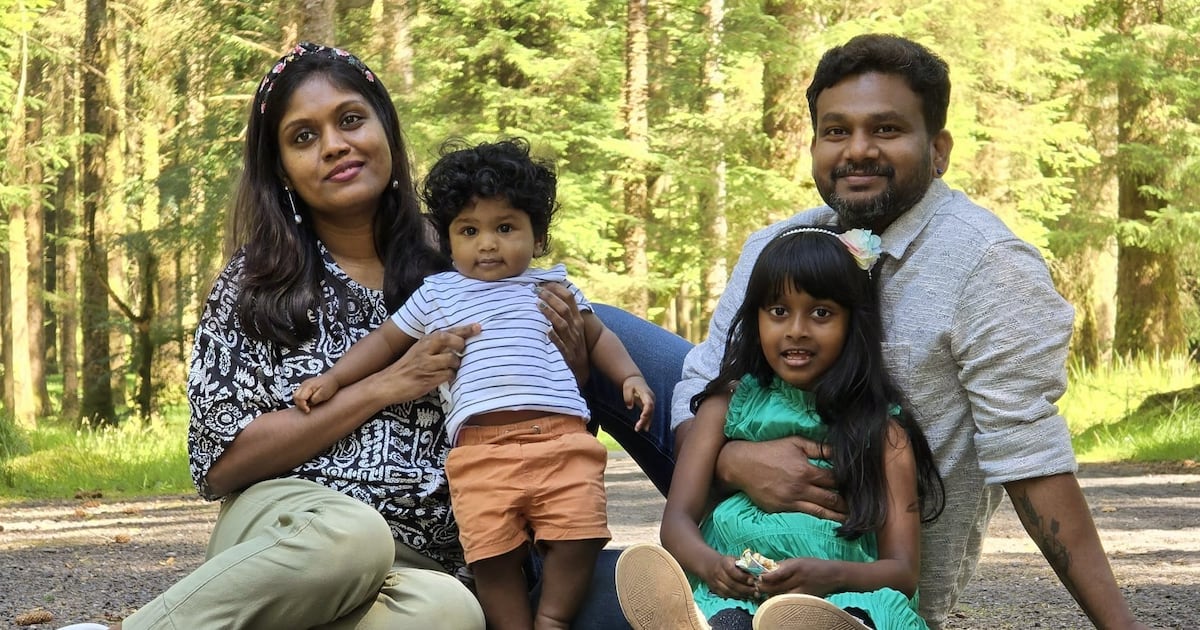‘Widespread media coverage in India’ of attacks on Indian people living in Ireland – The Irish Times

Recent attacks on people from south Asia in Ireland have received “widespread media coverage” in India and caused “damage” to the State’s reputation, the Department of Foreign Affairs has said.
Weeks ago, leading Indian newspapers would rarely mention Ireland outside of their sports sections, detailing golf games, rugby matches and cricket fixtures, although with the occasional news story about Conor McGregor, often in regard to his civil rape trial.
Now their reports on Ireland focus on a series of unprovoked attacks against people of south Asian origin living in Ireland.
Their headlines refer to physical attacks on Indian men: a taxi driver, a data scientist, a sous chef, who, respectively, were left with 12 stitches, a broken cheekbone and in need of hospital treatment.
Others reported on a soon-to-be tech worker who arrived in Ireland three weeks before he was beaten, stabbed, robbed, and partly stripped in Tallaght, Co Dublin. He was filmed in this condition and the clips swiftly spread on social media, igniting a wildfire of misinformation about the man. Gardaí are investigating the incident as a potential hate crime.
The mother of a six-year-old Irish-Indian girl who was allegedly attacked this week while playing with friends outside her home in Co Waterford has said her daughter “is doing a little bit better”.
Anupa Achuthan said her daughter Nia was punched in the face, had her hair pulled and was hit with the wheel of bike by a group of four or five boys about twice her age. They called her a “dirty Indian” and told her “to go back to India”, Ms Achuthan said.
Nia was born in Ireland, and her mother has worked as a nurse here for the past eight years. “She didn’t understand what they were saying to her,” Ms Achuthan said.
Nia’s grandparents, living in Kerala, southern India, “were so shocked” to hear of the “really racist attack” on their granddaughter. They learned about it when it was reported in the Indian media, Ms Achuthan said.
Noting the “widespread media coverage in India”, a Department of Foreign Affairs spokesman said there was “no doubt that these attacks damage Ireland’s reputation”.
The work of Ireland’s embassy in New Delhi to promote Ireland as a destination for students, tourism and business is also damaged, he said.
“The very small Irish community in India is equally appalled by these attacks,” the spokesman said.
“Concerns have been raised to the embassy from the Indian government, civil society organisations and the many Indian people with connections to Ireland.”
Ireland’s Ambassador to India, Kevin Kelly, wrote an article in the Hindustan Times, saying: “The people of Ireland stand with the Indian community and will continue to stand firmly against racism in all its forms.
“The Indian community is an integral and valued part of Irish society.
“Indians living in Ireland are contributing immensely to our economy, our education and healthcare sectors, our research institutions and our cultural life.”
More than 78,000 Indian nationals were living in the Republic of Ireland in 2023, population estimates from the Central Statistics Office show. This was under 2 per cent of the State’s total population of about 5.2 million at that time.
In all, 13,500 Indian nationals were granted skilled employment permits by the Department of Enterprise last year, amounting to a third of all permits issued.
Many Indians in Ireland work for the healthcare service or in the tech sector.
Nearly 18,500 Indian nurses and midwives are registered to work alongside their 54,000 Irish colleagues, figures provided by the Nursing and Midwifery Board of Ireland in 2024 show.
Chairman of the Ireland India Council, Prashant Shukla, warned of the effects these recent attacks were having on the Indian community in Ireland.
“Many individuals and families have contacted us expressing fear and uncertainty,” he said, saying some were even “considering returning to India”.
“Ireland has traditionally been viewed as a friendly, safe and welcoming country, especially for students, professionals and families. Unfortunately the recent spate of violent incidents has begun to alter that perception.”
Mr Shukla noted the widespread coverage of these attacks by the Indian media, saying the reaction in India had been “one of shock, sadness, and growing concern … public discourse is increasingly focused on the safety and wellbeing of Indian nationals abroad”.
“What we are now witnessing is a sharp and alarming escalation, both in frequency and brutality of attacks targeting members of the Indian community,” he said, identifying “an emerging pattern that cannot be dismissed as coincidental or isolated”.
“There is palpable fear among Indian parents whose children live in Ireland and a sense of disbelief that such targeted violence could occur in a country with which India shares historically warm relations,” Mr Shukla said.
He said the Ireland India Council had written to Tánaiste Simon Harris and Minister for Justice Jim O’Callaghan “urging a co-ordinated, multi-agency response” to these attacks.
The council is asking for “formal recognition of these assaults as hate crimes” and an “urgent establishment of a cross-departmental taskforce on hate crime and youth violence” among other recommendations.
“Above all, we urge Irish authorities to respond decisively and visibly to prevent the normalisation of such violence. Ireland’s reputation as a safe and just society depends on how we handle moments like this,” Mr Shukla said.
Ms Achuthan echoed this sentiment. In the aftermath of the attack on Nia, she said she received a response from “so many lovely Irish people, many of whom I don’t know personally”.
Some told her they were “ashamed to be Irish” in light of these attacks, “but that’s not right, nobody thinks this is a racist country”, she said.

